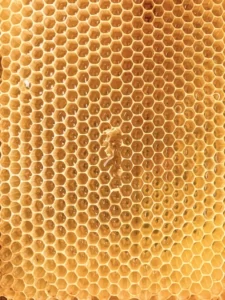Table of Contents
Manuka Honey for Asthma: Natural Remedies for Eczema
If you’re among the millions of individuals in the United States who suffer from eczema, you’ve likely tried various solutions in search of relief. Finding a drug or remedy that works can be challenging, and concerns about long-term effects, especially for children with eczema, can be worrisome. However, there are natural remedies and habits that can help alleviate dry and itchy skin. These do-it-yourself approaches not only provide relief but also allow for self-care. At the Allergy and Asthma Institute, our specialist, Dr. Lakshmi Reddy, diagnose and treat eczema. Here are some home remedies she recommends to keep your skin comfortable and strong in between visits.
Luxuriate in Moisturizing Baths
Hot baths may feel relaxing, but they’re not the best choice for your skin, especially if you have eczema. Lukewarm baths are recommended as they are better for the skin and provide a more comforting experience. Adding ingredients that soothe, moisturize, and support the skin can enhance the benefits of a bath. Examples include colloidal oatmeal, unscented bath oils, apple cider vinegar, other vinegars, baking soda, and Epsom salt or table salt. You can also create soothing pastes of baking soda or oatmeal to apply directly to itchy skin. It’s important not to soak for more than 15 minutes as excessive water exposure can dry out the skin. After the bath, pat yourself dry with a soft towel and apply a moisturizer or emollient cream to seal in the moisture.
Quick Showers
Similar to baths, showers should be quick and lukewarm to benefit individuals with eczema. Daily bathing is important for washing away bacteria and debris that may irritate the skin. Use gentle cleansers that are free from harsh chemicals or fragrances. Avoid scrubbing tools or rough washcloths that can further irritate the skin. Within three minutes of exiting the shower, seal in the moisture by applying a cream or oil to damp skin. Waiting too long before moisturizing can lead to even drier skin. Ensure you are thoroughly dry before getting dressed.
Raid Your Pantry for Remedies
Some items commonly found in your kitchen or bathroom can be transformed into effective eczema remedies. Apple cider vinegar (ACV) can balance the pH of the skin and eliminate bacteria. Dilute one tablespoon of ACV in one cup of warm water, soak cotton or gauze in the solution, and apply to the affected area. Wrap the poultice with clean cotton and leave it in place for approximately three hours. Honey, particularly Manuka honey, is antibacterial and aids in healing rashes, wounds, and abrasions. Apply a small amount of honey to the affected areas. Tea tree oil, when mixed with a gentle oil, such as sweet almond oil, can provide anti-inflammatory and antibacterial benefits. Apply this mixture to the skin as needed.
Chill Out and Manage Stress
Managing stress is important for overall well-being, including the health of your skin. Take time for deep breathing, meditation, and exercise to stay calm and centered. Avoid intense workouts during a flare-up, as added stress can exacerbate symptoms. Additionally, getting plenty of sleep is crucial, as it allows the immune system to remove toxins and repair damaged cells. Alternative therapies like acupuncture or massage can also help maintain a calm and functioning system, reducing the likelihood of eczema flare-ups.
If home remedies are not enough or you need further assistance, consider seeking treatment from the Allergy and Asthma Institute. Contact our friendly staff at 678-615-7878 or book an appointment online. Our specialist, Dr. Lakshmi Reddy, can provide the support and care you need to manage your eczema effectively.



